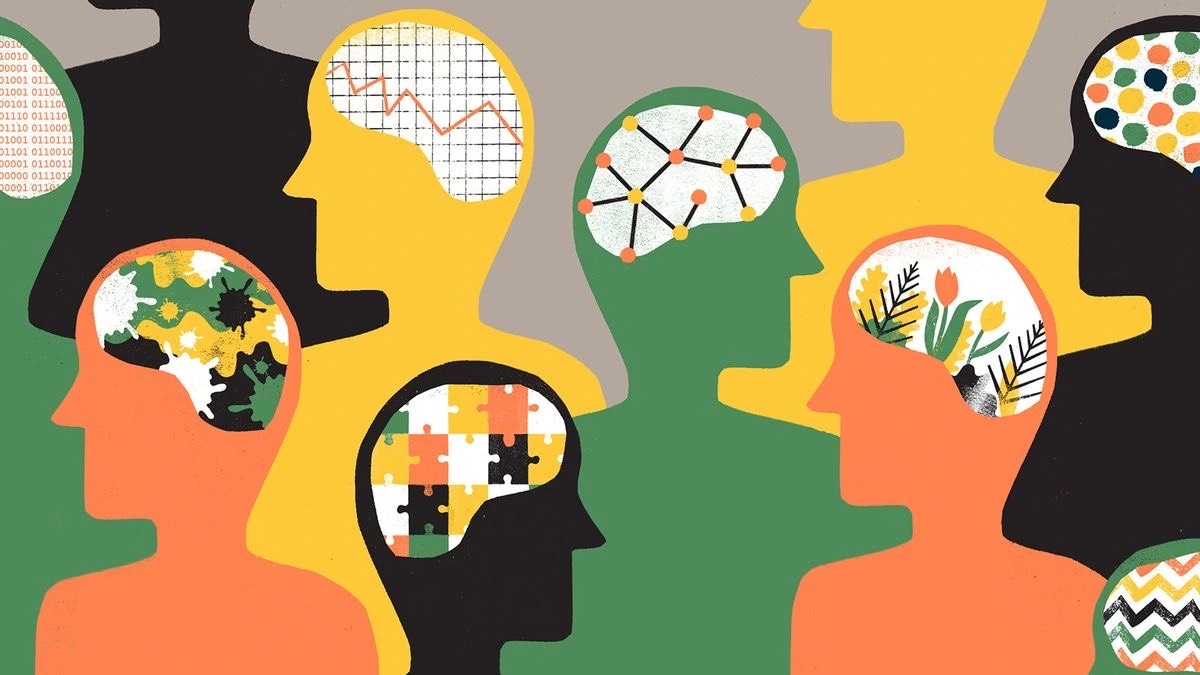A Hidden Demographic in a Bustling World
How often have we seen ourselves staring at those glaring screens and wondering what needs to be done next? Our decisions are often impacted on how our mood is, how our day was, most importantly how we want them to be shaped. Financial decisions work similarly where we try to understand if the decision could help us as an investor in order to get some return or get in better touch with the market. But is that the case with Neurodiverse investors? How often do you come across an investor who suffers from ADHD, not feeling overwhelmed with all those charts and graphs to make a decision or maybe worse being too impulsive to make one?
How difficult would it be for them to make a decision, especially where we live in the world where instant gratification is obtained within a fraction of seconds, but not the same for them ! The neurodiverse individuals represent 15%- 20% of the population (T Armstrong), that's roughly about 1.5 billion people, who are navigating the world, with conditions like Autism, ADHD, Dyslexia or other cognitive differences. This demographic still remains invisible , as it's an untapped market and something that's never been inclusive of. As per the recent organizational goals which have come out, it states the significance of providing an inclusive as well as equality based environment that keeps such factors considerable in nature. Businesses that have led the way in neurodiversity recruiting practices, such as Microsoft and SAP, report increased creativity and problem-solving skills. Mostly their exclusion from the financial systems isn't just about failure of empathy but failure of imagination itself.
Need for AI Models to be Re- Engineered for Neurodiverse users
In the U.S alone 1 in 5 people have reported being neurodiverse and that alone is a scary number to not keep in mind, there aren't just numbers, they are people with dreams of financial security who have been blocked by tools that don't fit their minds. If AI models are trained on datasets that underrepresented neurodiverse users, they risk perpetuating biases, offering solutions that don’t fit. (Belanche, D., Casaló, L. V., & Flavián, C )
This just doesn't restrict them or give them a boundary to not think further, rather it just limits their use of it and moreover closes options from having a decision which is tailored for them. Since the launch of Open AI’s ChatGPT from November 2022, if comprised of data which is completely unfactual or biased the results one might get is also going to be the same, since the algorithms work how the data has been fed by the user, which basically denotes that if used to help make a decision, its merely a biased one rather being a reliability.
Different Angle for Neurodiverse Users
According to the Harvard business reviews, Neurodiverse individuals are 30% more productive than other individuals and they tend to work more efficiently. The capability Behavioural finance seeks are individuals who upended traditional economics where in giving more priority in order to optimize wealth and make sure right people are able to contribute more in making financial decisions. Whereas the AI model does not take it that way, it just contributes more in terms of developing biases like Loss aversion.
Although Finance markets demand speed, precision and resilience some of the attributes that don't align with Neurodiverse Minds. But what if these attributes outperform other Investors and perform much better? If we look closely, the ability of an investor with ASD to recognize patterns could compete with algorithmic traders. The audacious, innovative risk-taking of an ADHD investor may reveal opportunities that others overlook. The intuitive understanding of broad patterns by a dyslexic investor may surpass that of data-heavy analysts. The catch? These strengths are frequently suppressed by traditional financial systems, which were designed for neurotypical consumers.
AI and Its Potential
Finance is another field where AI has brought about many changes in terms of ease in decision making and having Robo advisors and Algorithms that can predict the market swings are something which are been developed in the recent years in the area of finance for helping people make better decisions, which they don't regret later. Its strength lies in processing vast datasets—transaction histories, social media sentiment, even biometric signals like stress-induced heart rate changes—to deliver precise, scalable advice.
To illustrate AI’s potential, consider hypothetical but possible cases. Maya, a 40-year-old with ASD, avoided investing due to market volatility’s sensory overload. A neurodiversity-friendly robo-advisor, with minimalist visuals and low-risk options, helped her build a $50,000 portfolio, boosting her financial confidence. Liam, a 25-year-old with ADHD, lost $10,000 in impulsive crypto trades. An AI app with trade-delay alerts and gamified goal-tracking guided him to save $5,000 in a year. Riya, a dyslexic small-business owner, struggled with financial jargon until an NLP-powered platform translated reports into plain-language audio, enabling her to invest $20,000 wisely. These stories, rooted in real-world challenges, show how AI can turn exclusion into empowerment, if designed with care.
Balancing Power and Responsibility
Artificial intelligence isn't flawless. Trades and biometrics are examples of personal data collection that increases privacy issues, particularly for neurodiverse people who are judgmental. Unusual strengths can be dulled by biased datasets that distort guidance. An over-reliance on AI could deplete financial expertise, especially for investors who are easily distracted by other things. Even worse, the predictive ability of AI might be abused to influence investors to purchase expensive goods. Ironclad data protection, a variety of datasets, integrated learning tools, and stringent guidelines to maintain AI ethics are some solutions.
Road Ahead……
From a simple view it might look for a better investing days lying ahead, but the argument was about giving justice and being inclusive of all. Taking into consideration the requirements of all individuals regardless of what interest they have, it is about tailoring it and making it available for them in order to perform better and give them a safe place to feel included.AI can help close this gap, fostering financial independence and resilience.
Fintech firms must innovate, regulators must enforce fairness, and researchers must uncover new truths. The market potential is vast—1.5 billion neurodiverse individuals represent trillions in untapped assets. But the moral imperative is greater: a financial system that works for all is a system that thrives.
 Sharmili Sanjeev
Sharmili Sanjeev